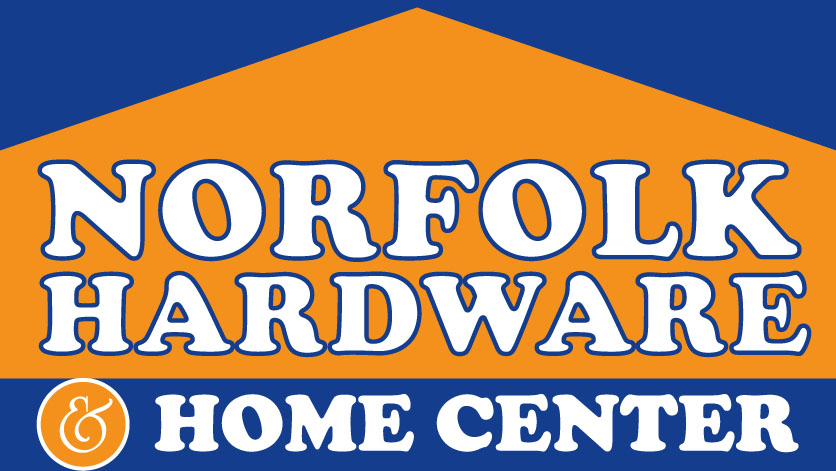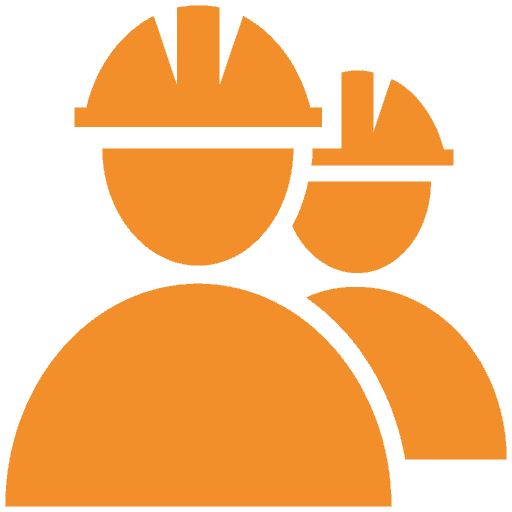
7 Different Types Of Screws
If you are a homeowner, chances are that you will need to use screws on more than one occasion. But if you have ever been to the hardware aisle at your local home center, you know that there are a large variety of screws to choose from. Even though most screws look similar, they are all designed with a specific purpose in mind. So, what screw should you use for your project? Here are 7 screw types that every DIYer should know.
Wood
As it says in the name, wood screws are specifically designed to secure one piece of wood to another. They have coarse threads with a smooth shank near the top, allowing for a tight connection while reducing friction between the two pieces of wood. Wood screws usually have a flat or a round head – use a flat head when you would like the screw to sit flush or below the surface of the wood.
Wood finish screws are available in a variety of sizes and are available for interior & exterior applications. Unless it is labeled as self-tapping, pilot holes will need to be drilled before installing.
Norfolk Pro Tip: When working with softer woods such as pine, use wood screws with fewer threads per inch. Fine thread is best used for hardwoods, like oak.
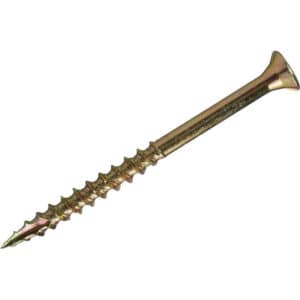
Deck
Deck screws are similar to wood screws with a few exceptions. Designed for attaching decking to a frame, these are typically self-tapping, meaning that you do not need to drill pilot holes before driving the screw into the material. They are also corrosion-resistant for durability, and are designed to countersink, sitting flush with the surface or just below it.
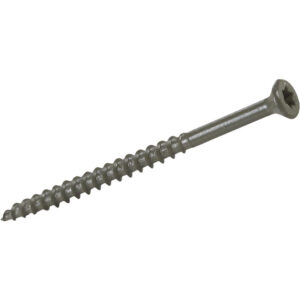
Drywall Screws
Drywall screws are, you guessed it, used to install drywall to wall studs or ceiling joists. These usually have a full-thread, no smooth shank, and are self-tapping, allowing you to secure the piece without damaging the drywall. Keep in mind, they often require a specific drill bit that doesn’t come in your average drill set.
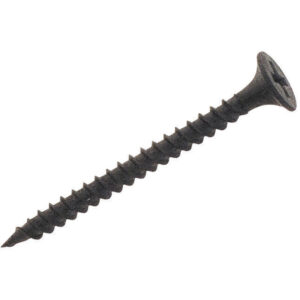
Masonry
These heavy-duty fasteners are used to work with masonry materials, like concrete. Typically, these screws feature a flat, not pointed, tip and a rounded, hex-shaped head. Masonry screws are not self-tapping, so holes must be predrilled.
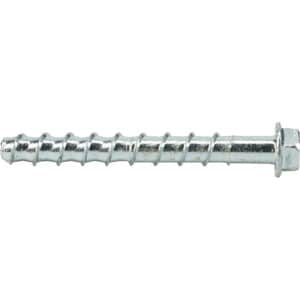
Sheet Metal
While these screws can be used on wood or other materials in a pinch, they are designed for use on metals. Sheet metal screws are strong, usually made from steel, with sharp points to allow you to drive through metal sheets with ease. They have a full-thread and are available in a range of sizes.
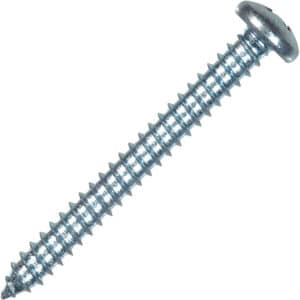
Lag Bolts
Lag bolts are large in diameter and coated in a corrosion-resistant coating. This ensures that they do not degrade over time while exposed to the elements. Lag bolts are used to create very firm connections with wood and other materials. Commonly found in decks, walls or other outdoor structures.
Carriage bolts, a kind of lag bolt, are specifically intended for securing two thick pieces of wood together. Their unique round heads them tamper-proof, ideal for structures in public places.
Lag bolts usually require a predrilled hole and extra tools to install.
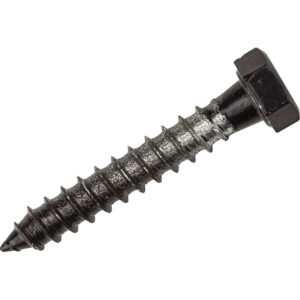
Hex Bolts
Featuring a hex-shaped head, these bolts secure wood and metal together. They have small threads and a long smooth shank. Hex bolts are typically used in interior projects but, if made of steel or galvanized, can work for exterior applications. In addition to a drill, hex bolts may also require a wrench for proper tightening.
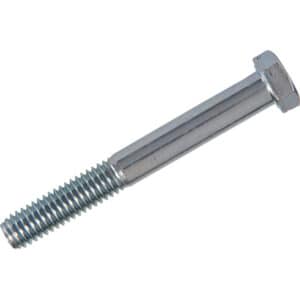
Screws For Any Project
Screws are extremely versatile and come in all sizes, shapes & materials. Norfolk Hardware & Home Center in Boston, MA has the largest variety of screws & fasteners for any DIY project. We also have experts to help you decide which fasteners would be best for your upcoming project. Stop by the store today to pick some up today!
Source: DoItBest.com
